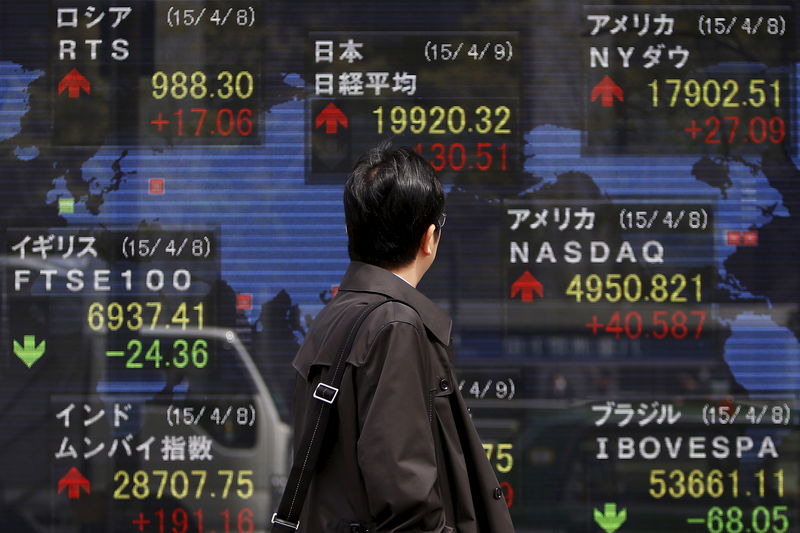Investing.com - Asian markets rose in morning trade on Friday after U.S. stocks closed in positive territory following a turbulent session that saw the Dow plunge more than 600 points at one point.
Despite last night’s gains, all three U.S. major indexes remain down more than 9% for December following losses earlier in the month.
In Asia, China’s Shanghai Composite and the Shenzhen Component gained 0.4% and 0.2% respectively by 10:12 AM ET (03:12 GMT). Fresh concerns over Huawei and ZTE (HK:0763) were in focus after Reuters reported, citing three sources familiar with the matter, that U.S. President Donald Trump is considering an executive order to ban American companies from using telecommunications equipment made by the two companies.
The British newspaper The Times also reported that Britain's defence minister Gavin Williamson said he has "grave, very deep concerns about Huawei providing the 5G network in Britain."
The news came one day after Bloomberg said U.S. and China are set to resume talks in early January. Earlier in December, the two countries agreed to a 90-day grace period on implementing additional tariffs.
Meanwhile, Japan’s Nikkei 225 slipped 0.3% in morning trade after closing 3.9% higher on Thursday. Official data showed the country’s industrial output fell 1.1% month-on-month in November, compared with a median market forecast of a 1.9% decline and a 2.9% increase in October.
Down under, Australia’s ASX 200 rose 0.5%. Rio Tinto Ltd (AX:RIO) announced that it does not expect to cut jobs in 2019 despite the plans to deploy automated heavy-haul trains.
The company began developing the rail project named “AutoHaul” that focused on driverless trains to transport ore to the company’s port operations, according to reports.
"Early results indicate significant potential to improve productivity, providing increased system flexibility and reducing bottlenecks," Ivan Vella, Rio Tinto's iron ore managing director Rail, Port & Core Services, said.
